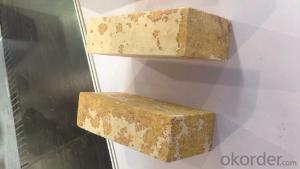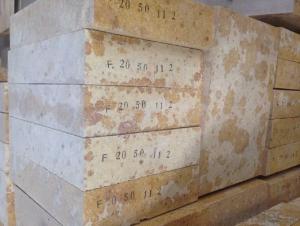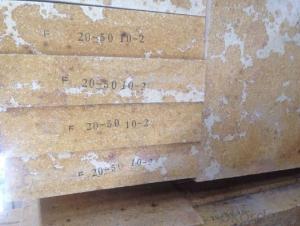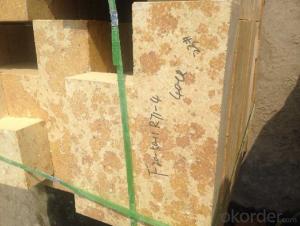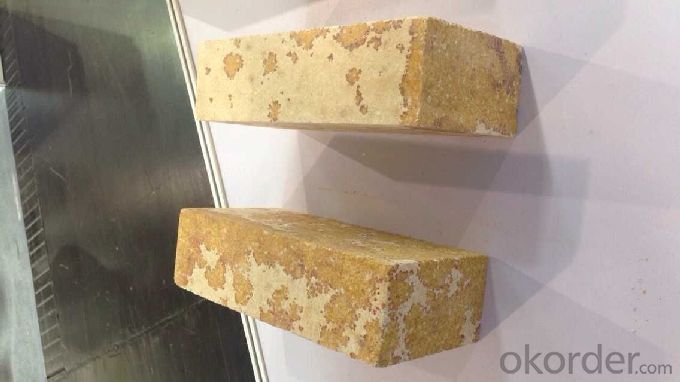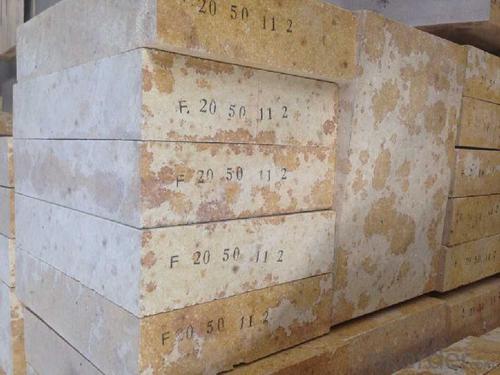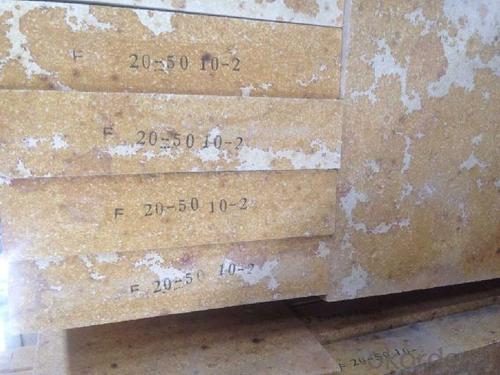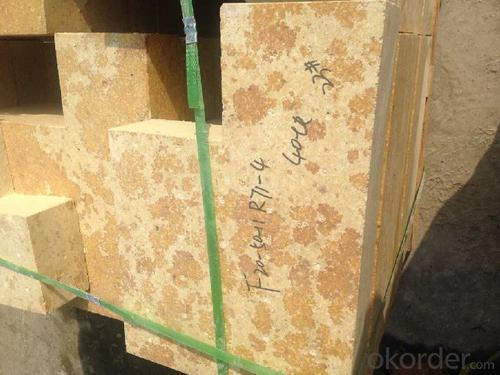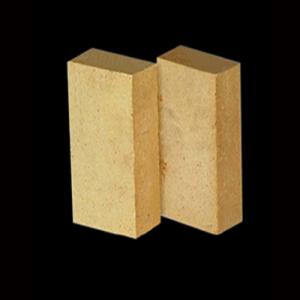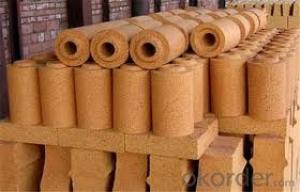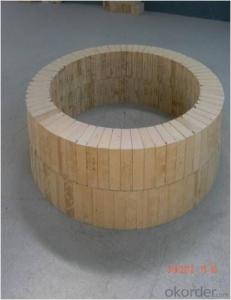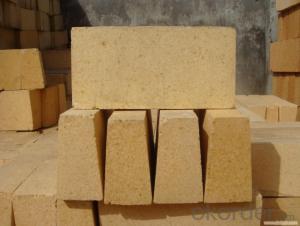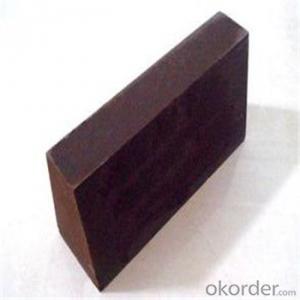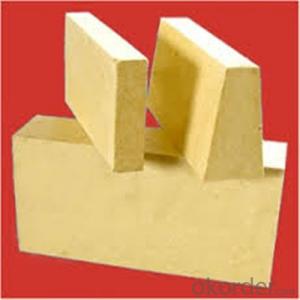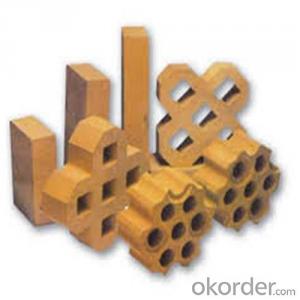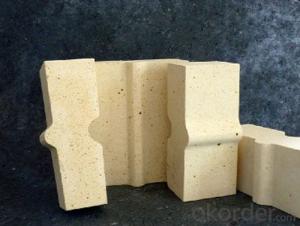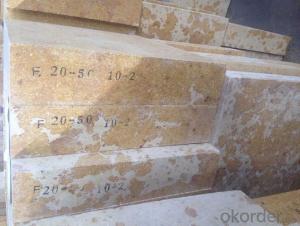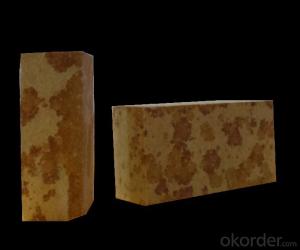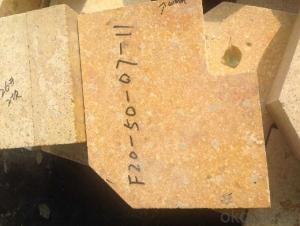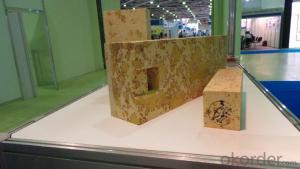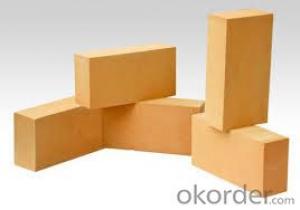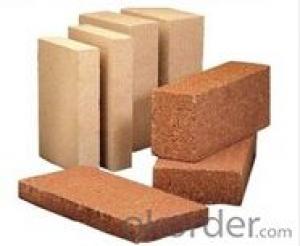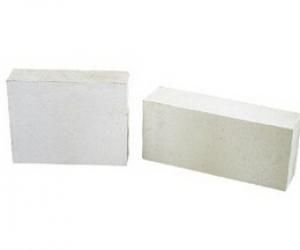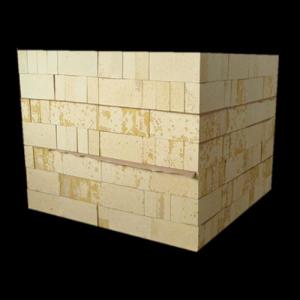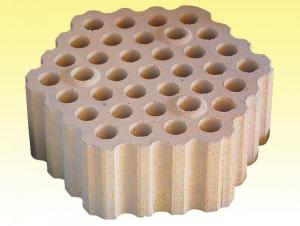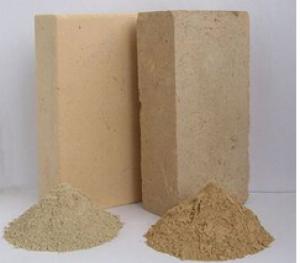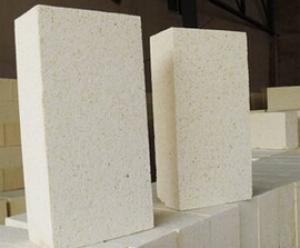Silica Sand Brick Patio Super Duty Silica Brick for Glass Melting Tank 94
- Loading Port:
- Tianjin
- Payment Terms:
- TT OR LC
- Min Order Qty:
- 15 m.t
- Supply Capability:
- 30000 m.t/month
OKorder Service Pledge
OKorder Financial Service
You Might Also Like
General Information
The CMAX super-duty silica bricks for glass melting tank is characterized by high purity, less impurity, good corrosion resistance, higher bulk density, complete phase transformation, lower residual quartz, high RUL, lower thermal expansion and stable volume at high temperature. This leads to increase in service life of glass furnace and reduction in energy consumption. These products have found wide application in crown and key areas and been highly appreciated by clients.
Feature
CMAX Silica bricks produced by CNBM are characterized by smaller density, good thermal shock resistance, lower thermal conductivity, high RUL and good insulating performance.
Application
Glass melting tank
Glass furnace
Physical Properties and Chemical Compositions
Item | Values |
SiO2 % | ≥94 |
Bulk density g/cm3 | ≥1.0 |
Cold crushing strength MPa | ≥2.0 |
Permanent linear change % 1450℃,2h | ≤0.5 |
Refractoriness under load 0.2MPa °C | ≥1500 |
Thermal conductivity W/(m.k) (350±10°C on the average) | ≤0.55 |
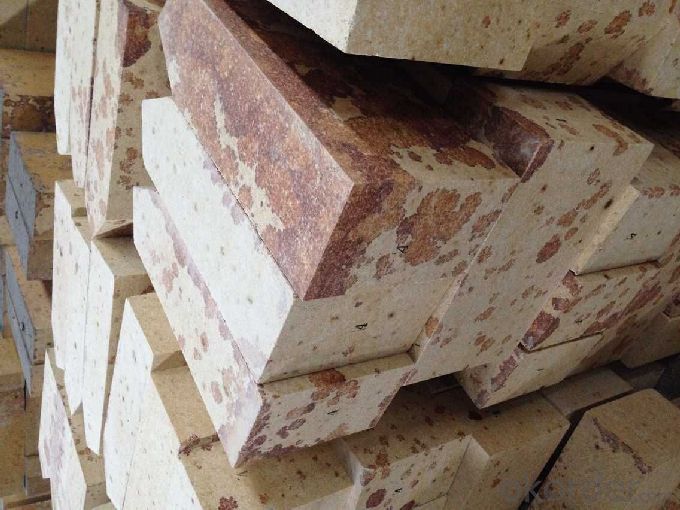
- Q: The introduction of silica brick
- The silica mineral phase is mainly composed of tridymite and cristobalite, there is a small amount of quartz and glass
- Q: Because of the recent relates to this industry, by way of learning to name for all raw materials, I hope knowledgeable friends exhibitions, thank you.
- Classification of chemical components of refractory materialsAccording to the chemical characteristics of refractory raw materials can be divided into acidic refractory materials, such as silica, zircon etc.; neutral refractory raw material, such as corundum, bauxite, mullite (acidic) (acidic), Ge (alkaline) iron and graphite; alkaline refractory materials, such as magnesite, dolomite, magnesium sand calcium sand.
- Q: What is the effect of the content of silicon nitride in silicon nitride bonded silicon carbide brick on the use of electrobath? Thank you
- The main damage of silicon carbide side wall brick is stress damage, not chemical erosion. Chemical damage is formed prior to the formation of the groove, and the damage to the chemical erosion is little after the formation of the groove.
- Q: The difference between clay refractory bricks and refractory brick in the application.
- The ability of alkali resistance is poor, the thermal shock stability is the worst, and it is scrapped at one time. The brick is generally used in the coke oven, glass kiln. Other industries basically do not use.
- Q: The brick is mainly used in the place?
- Open hearth furnace regenerator and a sediment chamber, soaking furnace, glass furnace refractory materials and ceramic brick kiln, kiln vault and other load-bearing parts.
- Q: The United States of our brick anti-dumping duties?
- . According to the relevant legal procedures, the United States International Trade Commission will make a final ruling on the anti dumping industrial injury before January 6, 2014, if an affirmative determination, the U.S. Department of Commerce will be involved in product release tax anti-dumping order.
- Q: Can not use it two brick
- Acidic silica brick refractory material, has good ability in acid slag erosion
- Q: What are the main constituents of refractory bricks?
- (a) containing refractory brick brick, refers to more than SiO293%, is the main varieties of acid resistant brick. It is mainly used for coke oven building, also used in furnaces all kinds of glass, ceramic and carbon calciner, refractory brick arches and other load-bearing parts, is also used in high temperature bearing part of hot blast stove, but should not be used in thermal equipment below 600 DEG C and the temperature fluctuation in the.
- Q: Why is the highest brick coke oven temperature measuring point temperature not exceeding 1450
- That is because the brick load softening point the maximum temperature is 1450 degrees.
- Q: The chemical composition of silica brick and its physicochemical index?
- The physicochemical index of silica brick:Turn left to |
Send your message to us
Silica Sand Brick Patio Super Duty Silica Brick for Glass Melting Tank 94
- Loading Port:
- Tianjin
- Payment Terms:
- TT OR LC
- Min Order Qty:
- 15 m.t
- Supply Capability:
- 30000 m.t/month
OKorder Service Pledge
OKorder Financial Service
Similar products
Hot products
Hot Searches
Related keywords
